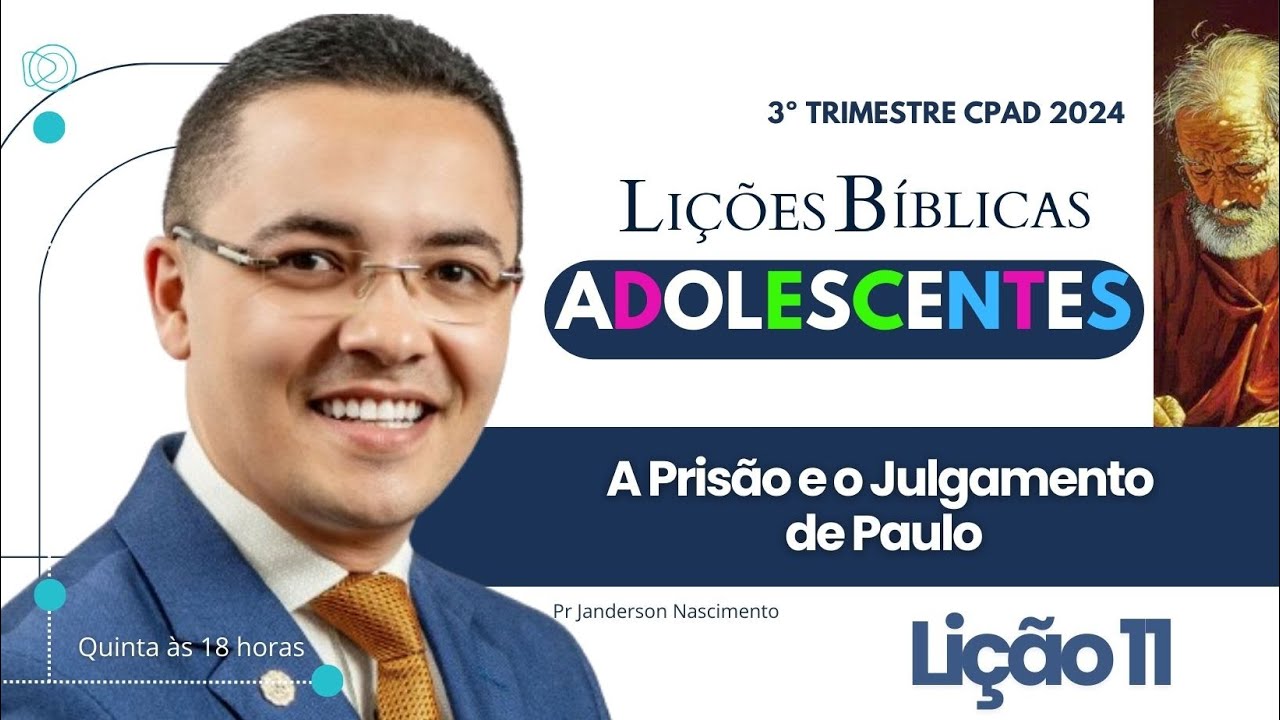Book of Colossians Summary: A Complete Animated Overview
Summary
TLDRPaul's letter to the Colossians was written during his imprisonment to encourage believers to remain devoted to Jesus despite cultural pressures. He highlights Jesus as the exalted Messiah and explains how his death and resurrection bring about a new humanity. Paul challenges the Colossians to reject mystical polytheism and Jewish law adherence, urging them to live in the present as a reflection of the future new creation. The letter also reshapes household relationships, promoting equality and love, and concludes with a message of liberation and transformation under Jesus' rule.
Takeaways
- ✉️ Paul's letter to the Colossians was written during his imprisonment, addressing a community he had never met.
- 🏛️ The church in Colossae was started by Epaphras, Paul's co-worker, who visited Paul in prison and shared news about the Colossians.
- ⚖️ Paul wrote to encourage the Colossians in their faith and address cultural pressures leading them away from Jesus.
- 👑 The letter emphasizes Jesus as the exalted Messiah, central to creation and the new humanity through his resurrection.
- 📜 Paul includes a poem in Chapter 1, highlighting Jesus as the true image of God and the firstborn over all creation.
- 🔄 Jesus' resurrection brings a new creation, where believers are part of his body, the new humanity.
- 🔗 Paul warns against cultural pressures, such as mystical polytheism and following the Jewish laws of the Torah, which could compromise faith in Jesus.
- 🛐 Jesus' death and resurrection are sufficient, fulfilling the Torah laws, freeing believers from spiritual powers and old obligations.
- 💡 Paul challenges believers to live as new humans, characterized by mercy, love, and transcending ethnic and social boundaries.
- 🏠 Paul redefines household structures around Jesus' self-giving love, transforming the Roman patriarchal system.
Q & A
What was the primary reason Paul wrote the letter to the Colossians?
-Paul wrote the letter to encourage the Colossians to address cultural pressures that were tempting them to turn away from Jesus and to challenge them to a greater devotion to Jesus.
Who started the church in Colossae, and what was their connection to Paul?
-The church in Colossae was started by a co-worker of Paul named Epaphras, who was from Colossae. Epaphras visited Paul in prison and updated him on the Colossians' situation.
What does Paul emphasize about Jesus in the opening movement of the letter?
-Paul emphasizes that Jesus is the exalted Messiah and that his suffering in prison is for Jesus, whom he considers the true ruler over all of creation and the head of the new humanity.
What is the significance of the poem in Chapter 1 of the letter?
-The poem in Chapter 1 highlights Jesus as the crucified and exalted Messiah. It has two stanzas: the first focuses on Jesus as the true image of God, and the second emphasizes Jesus' role in bringing about a new creation through his resurrection.
What cultural pressures were the Colossians facing, according to Paul?
-The Colossians were facing pressures from mystical polytheism, which tempted them to view Jesus as just another deity, and from Jewish Christians, who pressured them to observe the laws of the Torah, such as kosher diets and circumcision.
How does Paul address the Colossians' fear of spiritual powers and their relationship to the Torah?
-Paul reminds the Colossians that Jesus triumphed over spiritual powers through his death and resurrection, freeing them from any obligation to these forces. He also explains that Jesus fulfilled the laws of the Torah on their behalf, rendering additional observance unnecessary.
What does Paul mean when he challenges the Colossians to set their minds on things above?
-Paul is encouraging the Colossians to focus on the transcendent reality where Jesus rules from heaven over all creation. This focus should inspire them to live as the new humans they will become when Jesus returns to transform all things.
How does Paul redefine relationships within a Roman household in the letter?
-Paul redefines Roman household dynamics by placing Jesus as the true Lord, advocating for mutual respect and love between husbands, wives, children, and slaves, transforming traditional authoritarian structures into relationships shaped by self-giving love.
What is the significance of Onesimus being mentioned in the conclusion of the letter?
-Onesimus, a former slave to a Colossian Christian named Philemon, is now presented as a beloved brother in Christ. Paul requests that the Colossians and Philemon no longer treat Onesimus as a slave but as a fellow member of the Christian community.
What is the central message Paul wants to convey to the Colossians through this letter?
-Paul's central message is that every aspect of human existence, from suffering to household relationships, must be transformed by the loving and liberating rule of the risen Jesus. The Colossians are called to live in the present as if the new creation has already begun with Jesus' resurrection.
Outlines

This section is available to paid users only. Please upgrade to access this part.
Upgrade NowMindmap

This section is available to paid users only. Please upgrade to access this part.
Upgrade NowKeywords

This section is available to paid users only. Please upgrade to access this part.
Upgrade NowHighlights

This section is available to paid users only. Please upgrade to access this part.
Upgrade NowTranscripts

This section is available to paid users only. Please upgrade to access this part.
Upgrade Now5.0 / 5 (0 votes)





